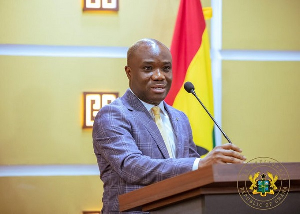Accra, May 27, GNA - The Minister of Environment and Science, Professor Kasim Kasanga on Thursday said irrational ways of solving problems based on superstition has become the biggest obstacle facing the nation.
He, therefore, called for the adoption of scientific methods of explaining problems rather than relying on superstition.
Prof. Kasanga, who was speaking at the Third Annual General Meeting (AGM) and Workshop of the African Technology Policy Studies (ATPS) in Accra said; "the challenges facing the nation today was to transform the minds, attitudes and behaviours in our society to appreciate scientific approach to doing things".
The meeting, which attracted participants from research organisations and the academia, is on the theme: "Science Acculturation for National Development - Defining Effective Strategies."
The workshop is expected to come out with strategies that would help explain things scientifically, based on facts and given reasons. The Minister called on the participants to formulate strategies for science acculturation in Ghana adding that farmers, micro and small scale industrialists and ordinary citizens should not be left out in the kind of strategies that would be deliberated on.
Prof Kasanga referred to superstitious beliefs, which dominated road construction saying: "If a particular spot on the road is causing accidents the traditional thinking is that evil spirits or ghosts are operating there and must be exorcised.
"We spent resources to slaughter sheep and goats and pour libation as a way of driving away the evil spirit to prevent the accidents. But quite often the problem persists."
He said the scientific method was to analyse the problem holistically and it was necessary re-examine the engineering design of the road as to whether there was an error somewhere.
Prof. Kasanga said superstition had dominated almost the lives of Ghanaians that even a defeat in a football game was explained off in spiritually terms while the real technical problems were neglected. Dr Joseph O. Gogo, Board Chairman of ATPS, attributed the under- development of the country to the low level of science acculturation in the system.
He said many of the country's natural resources were going to waste due to lack of scientific knowledge.
He said the need had come for the country to face the challenges that lay ahead in the effort to use science as catalyst for socio-economic development.
Dr George Owusu Essegbey, National Coordinator of ATPS, said the formulation of policies would have to be on proven conceptual and empirical basis for effectiveness.
He said Ghana could emulate advanced and newly developed industrialised countries, which made use of science and technology for their advancement.
General News of Thursday, 27 May 2004
Source: GNA
















